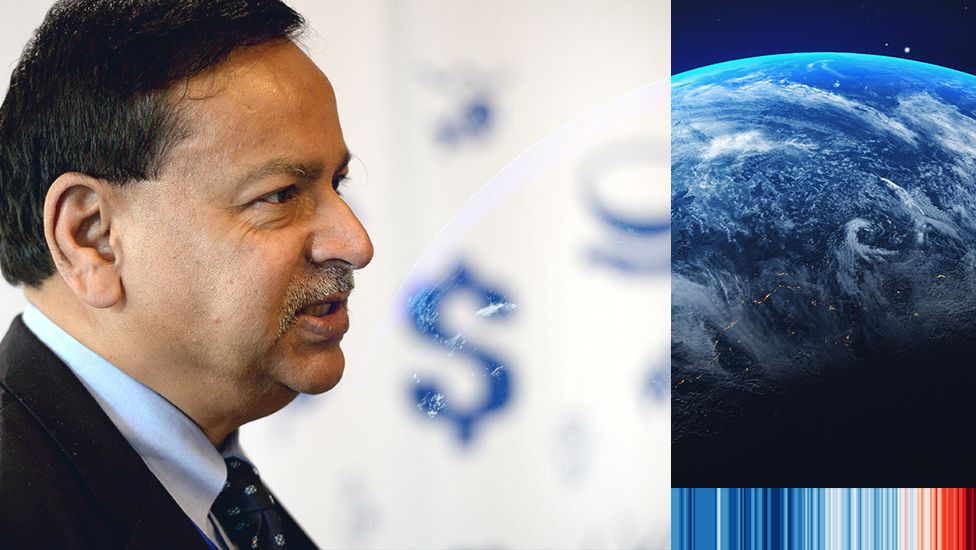My Day at COP26: 'Anything we achieve in Glasgow is not going to be enough'
- Published

Bangladeshi climate scientist, Saleemul Huq, is at COP26 to advise the world's least developed countries. In the latest in a series of first-person accounts, he describes the mood as the UN climate conference nears its conclusion.
This is my 26th COP, I've actually been to every single one. I'm not here as a negotiator but as an adviser to the group of Least Developed Countries - the 46 countries who are most vulnerable to the impacts of climate change.
My own country is badly affected - there are nearly 170 million people in Bangladesh living on less than 150,000 sq km on the delta of two of the world's biggest rivers, the Ganges and Brahmaputra. Because of this, vast numbers of people are extremely vulnerable.
I originally started advising the group of Least Developed Countries on the issue of adaptation to climate change, but now that we're suffering the impacts of climate change we're no longer simply able to adapt to it. So, more recently, I've been advising them on a new and emerging topic - loss and damage from climate change. It's a highly politically contentious issue - rich countries don't like talking about it because they feel it will open them up to liability and compensation claims.
My own country is badly affected - vast numbers of people are extremely vulnerable
Yesterday, we saw the first draft of the agreement. There's a great deal of disappointment in the lack of ambition in that draft, but in calling for more support for developing countries and recognising that more finance is needed, I think they've done something quite positive on loss and damage. That's the one issue that I was wishing and fighting for and we can now build on this for COP27 next year, which will be an African COP.
My Day at COP26:
- 'I was nervous. Breathe I said. I looked up to see Biden'
- 'My island home is threatened - we have no hill to run to'
- ‘My dog doesn't care if Biden is here’
- 'It's my job to keep the summit fed - sustainably'
- 'By helping out delegates I'm remembering granddad'
- 'My Madagascans left, now I've got Pacific islanders'
- 'Existing on carbon-counted sandwiches and Irn-Bru'
- 'I'm painting murals so people don't forget COP happened here'
There have been two weeks of meetings here. They go through ups and downs. Some are more important than others, some very technical, some highly political. But the core business is the negotiations.
Now that we have asked for revisions to the draft agreement, we are waiting to see what the presidency does next. These last-minute deals are all dependent on how strongly countries express their views on what they want included and what they want excluded.
We have a history of going into overtime at COP which muddies the waters and makes people angry and not willing to compromise. We have just over 24 hours to go and I get a sense that things are moving in the right direction. The atmospherics are positive. Yesterday, we had a big announcement from China and the US that they would work together - so that's a very good thing.
The only caveat is that anything we achieve here in Glasgow is not going to be enough. But it will be something, and so we'll celebrate something, while knowing that it isn't enough.
As told to Sarah McDermott
The COP26 global climate summit in Glasgow is seen as crucial if climate change is to be brought under control. Almost 200 countries are being asked for their plans to cut emissions, and it could lead to major changes to our everyday lives.